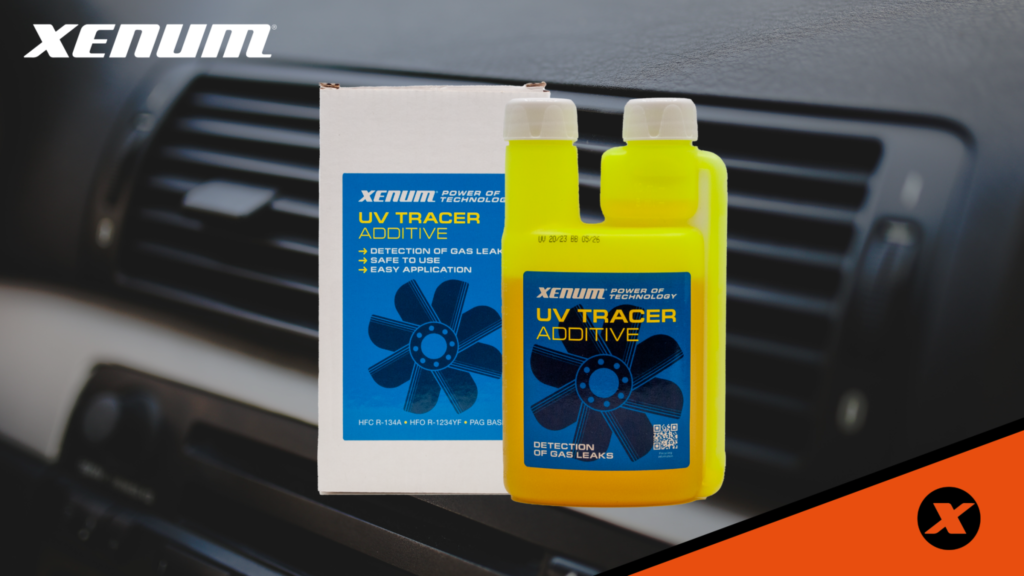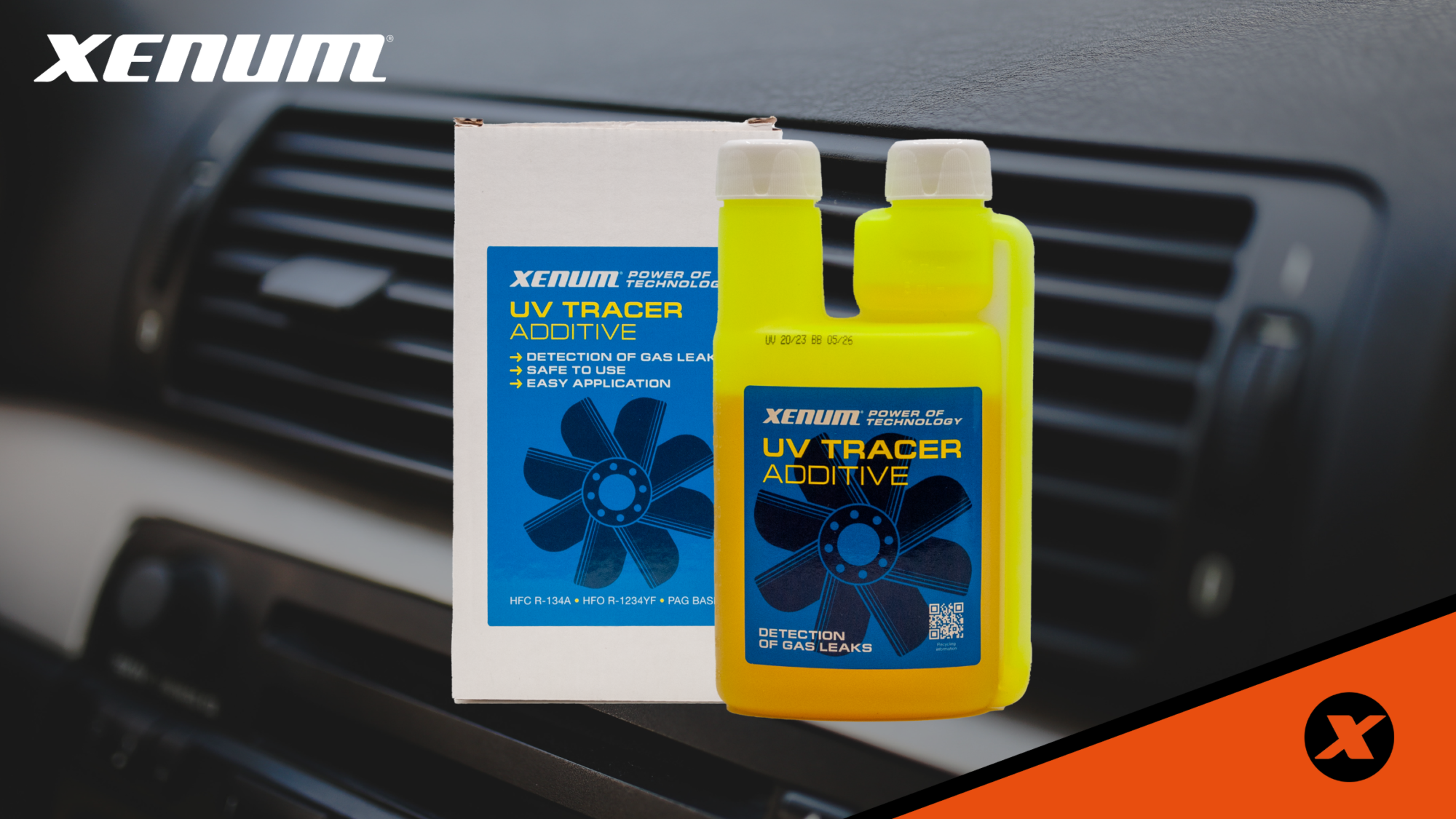A common problem with a car's air conditioning system is a refrigerant leak in the circuit. This results in a rapid reduction in refrigerant volume, causing reduced air conditioning performance and potential damage to the system. Now the big question is, is this just a harmless spot of moisture under the engine, or are we dealing with a real leak? Leak detection can be approached in a number of ways, but using a contrast agent and performing an ultraviolet examination is by far the easiest way to trace a leak and get reliable results. Without difficulties, without complications - a simple and reliable way to solve the problem.
On average, a car's air conditioning system loses 50 to 80 ml of refrigerant per year.
While loss of refrigerant in a vehicle's air conditioning system is normal, excessive loss indicates a problem. During long periods of non-use, the internal seals of the air conditioning system dry out, shrink and form small cracks. This can lead to refrigerant leakage from the system. When there is not enough refrigerant, the AC compressor lacks adequate lubrication, causing it to overheat and become damaged, often requiring costly repairs.
Remember, it's always better to be safe than sorry. That is why it is extremely important to eliminate micro-leaks in a timely manner.
UV Tracer is fast and easy to use
UV Tracer Xenum is a great product that allows you to detect leaks yourself without much effort. By simply adding this additive to your air conditioning system, refrigerant leaks will fluoresce under UV light. With a quick overview, you can pinpoint the source of the problem and deal with it directly.
UV Tracer offers a quick and economical solution that requires only 7.5ml of product and 30 minutes of AC operation. This product is designed for professionals and although it is not harmful or dangerous, we recommend that you wear protective gloves and UV resistant glasses for added safety.

 automatic transmission (automatic)
automatic transmission (automatic) MKP (Mechanics)
MKP (Mechanics) Lubricating system
Lubricating system Fuel system
Fuel system Cooling system
Cooling system
